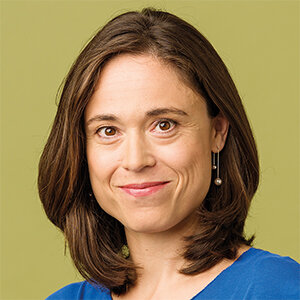Leonhard Dobusch
Professor; Faculty of Business & Management at University of Innsbruck
Elke Schüßler
Professor; Head of the Institute of Organization Science at Johannes Kepler University Linz Business School
Photograph by Robert Maybach
Why this course
This course demonstrates what rapid, remote collaboration can truly look like. Co-created by faculty from different universities, the course is fully digital and open source, and designed to be adapted and taught across multiple universities
Professors Dobusch and Schüßler examine the current Covid19 crisis through the lens of a variety of theoretical concepts, reinforcing the student’s grasp of the concepts themselves while demonstrating their practical relevance in times of great disruption and uncertainty
Course Trailer
Course Highlights
Learning Objectives:
Analyze the current Covid19 crisis through the lens of organization theory
Understand the role of different organizational forms such as bureaucracies, high-reliability organizations or inter-organizational networks in coordinating responses to crisis
Understand alternative and open forms of organizing and their advantages and difficulties
Understand the role of leadership in crisis situations and reflect on different types of sensemaking with regard to open communication and transparency on the one side and uncertainty and an unknown future on the other side
Understand the challenges of organizations to communicate in times of crisis, and the role of social media for and in crisis communication
Reflect on how organizations can be designed to respond to unexpected events and be responsive and resilient
Understand how crisis can be a trigger for entrepreneurship, innovation and change
Understand the ways in which grand challenges relate to inequalities, including gender inequality
Critically engage with both theoretical concepts and practical contemporary phenomena
Reflect on what organization theory and practising managers can contribute to addressing grand societal challenges
All the materials for this course are openly licensed and available open access at timesofcrisis.org, with the lecture videos being hosted at the corresponding YouTube channel. This allows anyone to study, re-use, adapt and share the content freely according to his or her needs.
Latest Coverage
Biography
Leonhard Dobusch is Professor of Business Administration with focus on Organization at the University of Innsbruck. His main research interests include the management of digital communities, private regulation via standards and openness as an organizing principle. He is co-founder of the Momentum conference series and the think tank Momentum Institute, member of the ZDF television council for the area “Internet”, blogs at osconjunction.net and is a regular contributor at netzpolitik.org.
Elke Schüßler is Professor of Business Administration with a focus on Organization Theory at the Johannes Kepler University Linz. Her main research interests revolve around societal challenges such as climate change and decent work in the context of global production networks, institutional change and creativity. She is a member of the Advisory Board of the Momentum Institute and Vice President of the European Group for Organizational Studies (EGOS). She has also co-founded the Society for the Advancement for Socio-Economics‘ “Digital Economy” network.
To view the complete list of involved faculty, visit https://timesofcrisis.org/contact/











